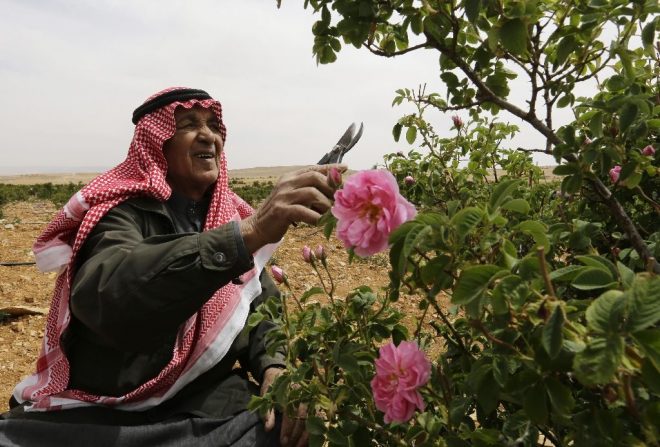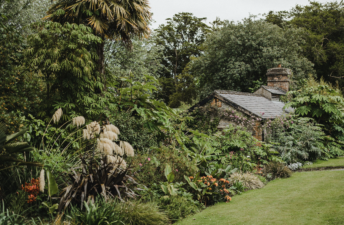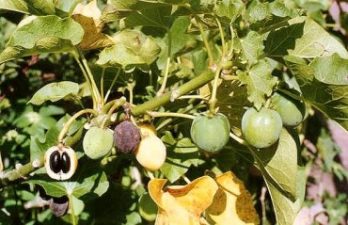Used for perfumes, rose water; and for flavoring sweets like Turkish Delight, Syria’s famed Damask Rose, or Damascus Rose, once championed by romanticists like William Shakespeare, is experiencing hard times due to the ongoing war in Syria.
Although also grown in Turkey, Iran and other countries, the 30-petaled Damask rose, which achieved its most fame in areas of Syria near Damascus, has been in steady decline due to ravages of climate change in Syria and warfare.
Long exported to Europe and other regions, this unique member of the rose family has been famous for centuries. Prior to the outbreak of hostilities in Syria, more than 80 tons of damask rose petals were exported annually from the town of El Mrah for distillation into the oil used for both perfumes and food flavoring.
The heady smelling rose has adorned gardens and balconies of residents in the Syrian capital; and especially in El Mrah, 65 km east of Damascus, where an annual rose festival used to be held:
“Now the area reeks of gunpowder instead of roses,” says a local area resident, Hamza Bilal. Bilal owned a distillery for producing oil from damask rose petals. After several years of civil war and drought, less than 20 tones of rose petals are now exported abroad.”

Photo of Syrian picking damask roses via AFP Photo/Louai Beshara
The qualities of the damask rose became known to the Crusaders, who brought it back with them to Europe during the Crusades. This began a love affair with a flower and its fragrance that inspired Shakespeare to exalt it in his Sonnet 130 about a less than favored damsel: “I have seen roses damask’d, both red and white. But no such roses I see in her cheeks.”
Damask roses and oil have also been exported to markets in the Arab Gulf, where fresh Damask rose flowers were heavily in demand.
Such is the fate of this famous flower, now literally withering on the stalks of the dwindling numbers of rose bushes still not destroyed by more than 5 years of civil war:
“It’s not just a business relationship we have with the flower, it’s part of the family,” said Amin Bitar, an 80-year old Damask rose cultivator from El Mrah, who has grown the flowers all his life.
He added that the Damask rose will not “come back to life until this war is over.”
Stores in California sell the damask rose but we can’t authenticate that it will smell as sweet as the ones growing in Syria. But growing a damask rose, a gooseberry bush, a fig tree or an olive tree in a pot or container is an action that can change the world by keeping plant diversity and seeds , and your place in it. We believe in growing.
More on climate change and war in Syria
NASA calls Mideast drought “worst in 900 years”
Watar, wars and an uncertain future
How climate change contributed to the Syrian uprising




